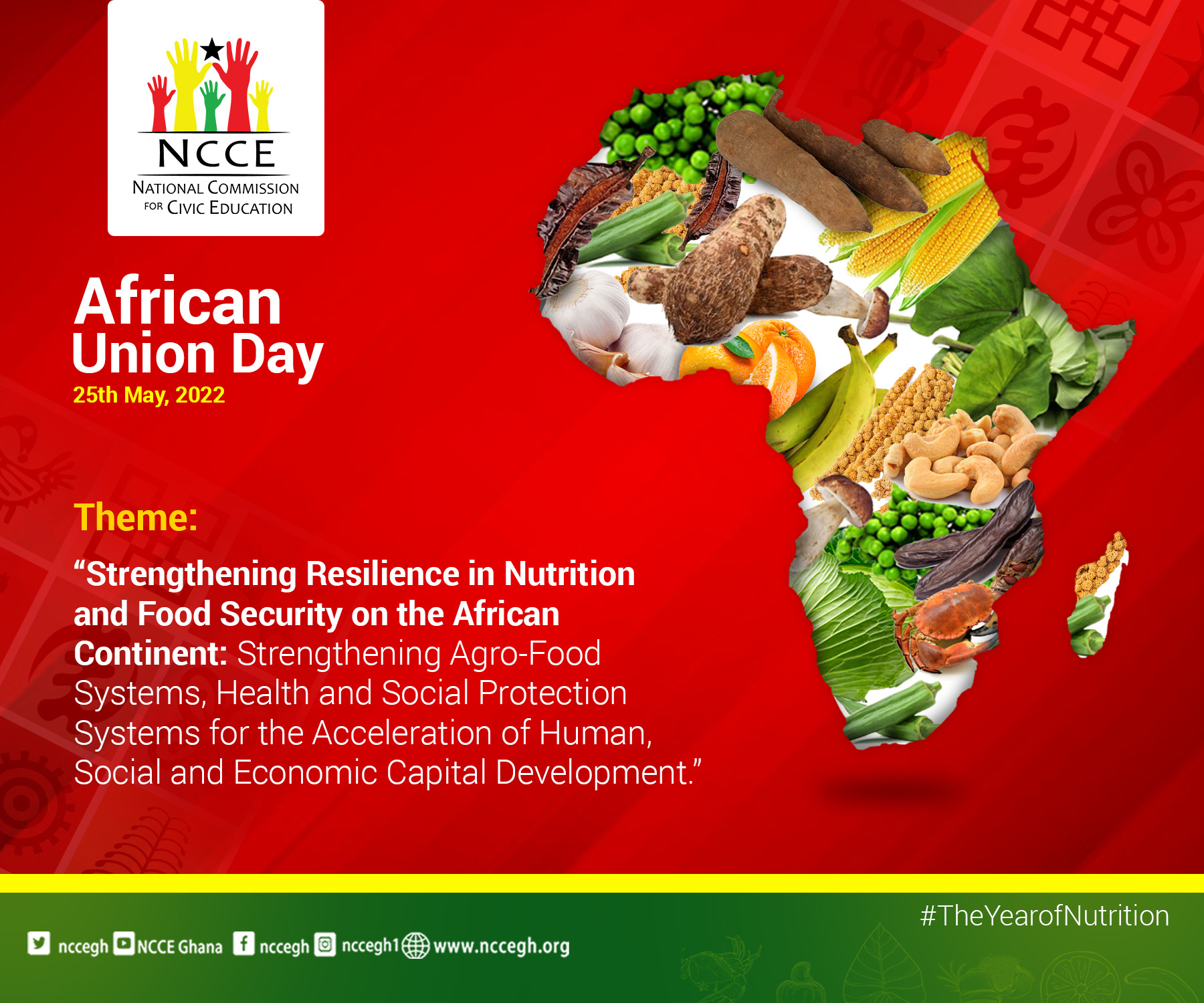The National Commission for Civic Education (NCCE) joins Ghana and the African continent at large in commemorating African Union Day. This day is set aside to celebrate the emancipation of all African countries from colonial rule. This year the celebration is on the theme “Strengthening Resilience in Nutrition and Food Security on the African Continent: Strengthening Agro-food Systems, Health and Social Protection Systems for the Acceleration of Human, Social and Economic Capital Development”. The theme aims at capitalizing on the potential of Africa’s population and resources to achieve food security
African states have achieved political Independence. However, there can be no mention of full economic and social independence without emphasizing a healthy populace. According to the United Nations World Populations Prospects 2019 report, the continent's annual population growth rate in 2021 was 2.45 per cent and is projected to remain above 2 per cent for the next 20 years. The large youth population, if effectively leveraged with the right investments, could contribute to accelerating sustainable and equitable development. The findings of the 2019 UNICEF report on the State of the World’s Children, indicate that 6 million children are affected by acute malnutrition in West Africa and central Africa. With multiple factors including land and crop degradation, periodic droughts and weather-related shocks, poverty and limited access to basic food staples.
In Ghana, close to one in every five children under 5 years experiences stunted growth while one in every ten children under 5 is underweight, according to the 2019 UNICEF report on the state of the world’s children. Almost 2 in 3 children between 6 months and two years of age are not fed food that supports their rapidly growing bodies and brains, putting them at risk of poor brain development, weak learning, low immunity increased infections and sometimes resulting in death.
The Commission calls out all stakeholders to keep the issue of malnutrition a priority, by adopting and implementing long-term nutrition action plans to combat this phenomenon.
The NCCE further urges government to make the agricultural industry attractive and profitable to youth as a way to combat unemployment. Consequently, again the youth must be involved in the planning, design, and implementation of agricultural policies. The low involvement of youth in various stages of the policymaking and implementation result in failure to provide them with adequate support that aligns with their aspirations. To attract young people into this sector, government spending must be targeted at reducing real and perceived agribusiness risks, enabling financing, and improving infrastructure.
Africa has the potential to change this trend. Africa has the largest share of uncultivated agricultural land in the world and a rapidly growing workforce that can help boost agricultural growth and attain food security.
It’s our Africa, let’s make it bloom!

_
Follow us on our social media pages for more stories and posts from the NCCE.
Instagram
https://www.instagram.com/nccegh1/
Facebook
https://www.facebook.com/nccegh/
Youtube


Leave a comment